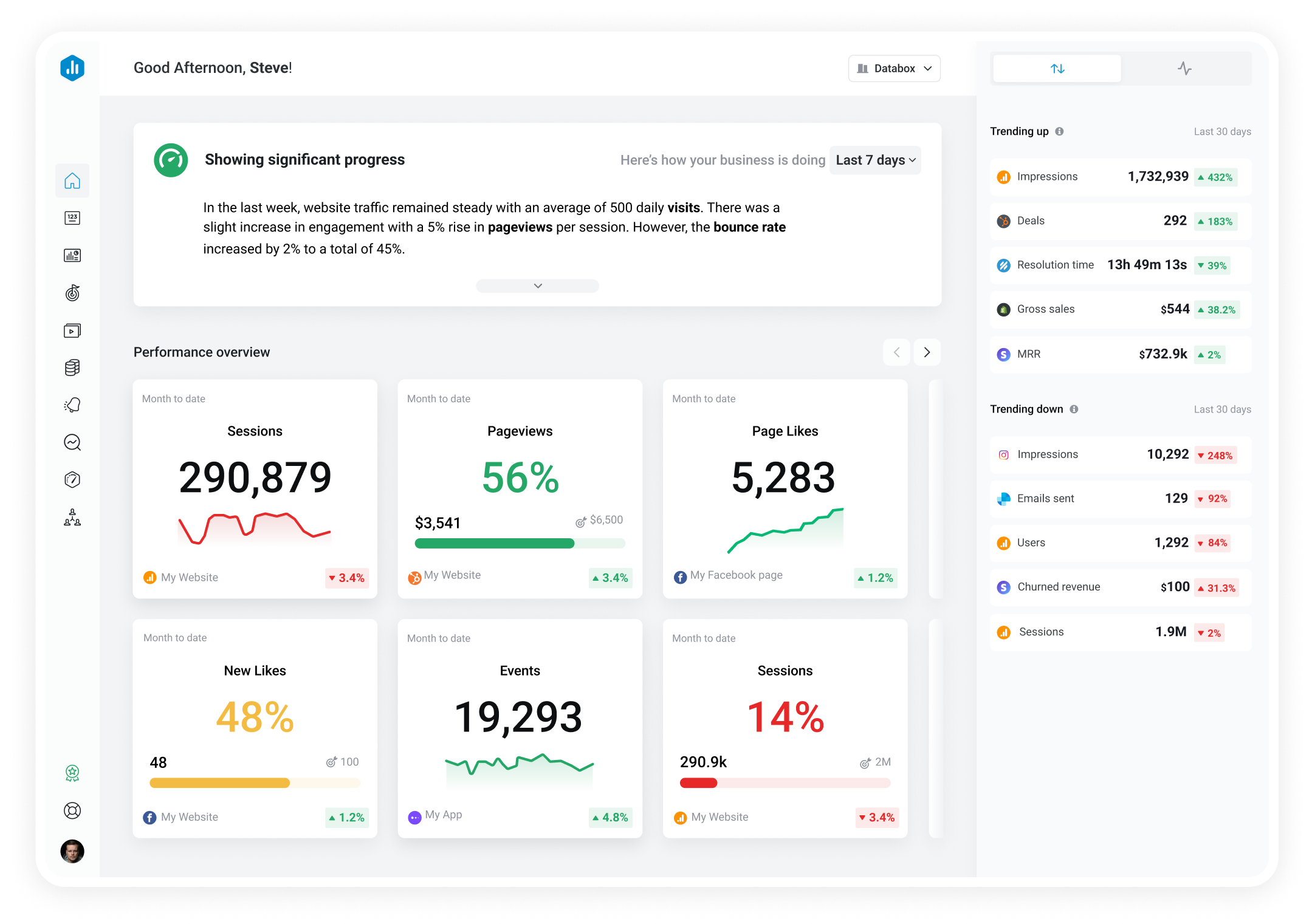Track all of your key business metrics from one screen
GET STARTED
 Xero
Total Cost of Sales (Budget)
Xero
Total Cost of Sales (Budget) Total Cost of Sales (Budget) is the projected amount of direct costs incurred to produce goods or services that are sold during a specific period. This includes materials, labor, and overhead expenses. It helps businesses track and manage their expenses related to sales in a budgeted period.
With Databox you can track all your metrics from various data sources in one place.

Used to show a simple Metric or to draw attention to one key number.
Databox is a business analytics software that allows you to track and visualize your most important metrics from any data source in one centralized platform.
To track Total Cost of Sales (Budget) using Databox, follow these steps:
 Goals
Goals Scorecards
Scorecards Metric Digest
Metric Digest Metric Builder
Metric Builder Data Calculations
Data Calculations Performance Screen
Performance Screen